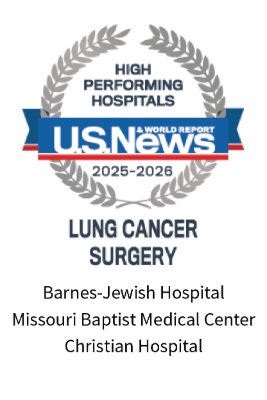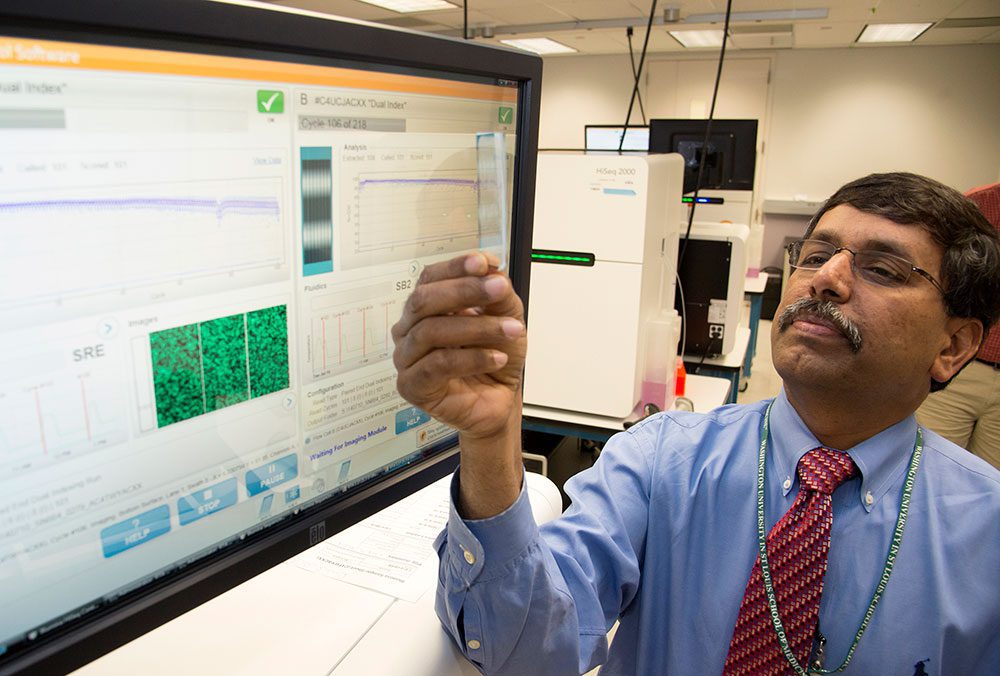Lung Cancer
We understand that receiving a lung cancer diagnosis can feel overwhelming. With us, you never have to face this challenge alone. Our compassionate team of lung cancer experts offers the most advanced treatments and the support you need every step of the way.
How is lung cancer treated?
Treatment for lung cancer depends on the type of cancer and whether it has spread beyond your lungs. We use the most advanced medicines, radiation, and surgical techniques to help you fight lung cancer.
Lung cancer treatment may include:
Surgical oncology
Chemotherapy and medical oncology
Immunotherapy and genetics
Radiation oncology
Clinical Trials
Medical oncologists at Siteman are continually investigating new and innovative treatments through clinical trials.
Locations near you.
Lung Cancer News & Resources
Article
Breathe Easier: Tips for Improving Your Lung Health
Article
Leading The Way in Lung Cancer Diagnosis
Article
Who Should Get Screened for Lung Cancer?
Article
How Can You Reduce Your Risk of Lung Cancer?
News

